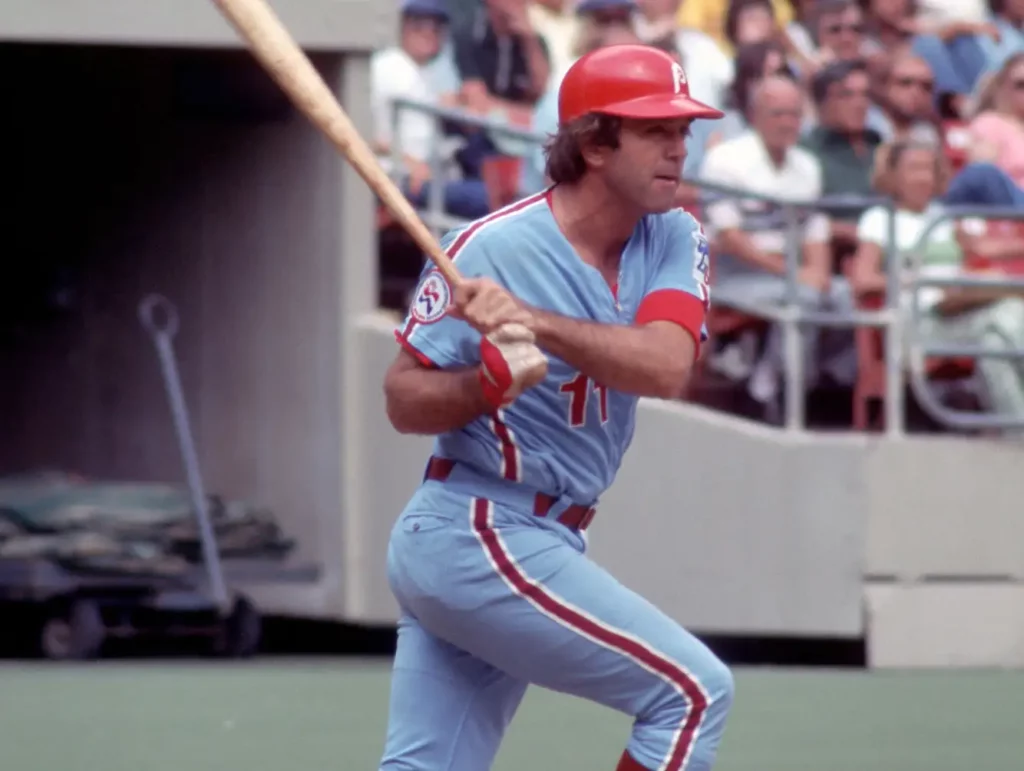In my youth I looked forward to holiday doubleheaders on Memorial Day and July 4. However, today doubleheaders are as common as the leisure suit, gone in an era where money-hungry teams don’t want to give away a game for free and unwanted by a low-attention-span generation raised on Twitter.
A most memorable bicentennial
My most memorable holiday doubleheader took place on July 4, 1976, the nation’s bicentennial. The Pittsburgh Pirates and Philadelphia Phillies faced off at old Three Rivers Stadium. I was there with my childhood best friend Benny. In a couple of months, he would start his third year away at college, I would begin my first. We made it a point to see a ball game once a year so we didn’t lose touch, although eventually we would.
The Pirates had won the National League East Division title every year but one during 1970-75. The Phillies, thanks to emerging young players and shrewd trades, were daring to encroach on the division title Pirates fans thought belonged to them by birthright. From 1976-1978, the two Pennsylvania teams were involved in a fierce rivalry, the likes of which we may never see again. In those years, the Phillies claimed the division title with the Pirates close behind in second. Under today’s rules, whichever team didn’t win the division would be the wild card. Battles over mere seedings aren’t as intense as pennant races where one team survives, one goes home.
The personal catcher
The first game pitted starting pitcher Steve Carlton for the Phillies against the Pirates’ Larry Demery. Carlton’s presence in the lineup meant his personal catcher, Tim McCarver, would be in there, too. I never understood the concept of the personal catcher. Other pitchers like Greg Maddux and Jon Lester preferred a personal catcher. He always seemed to be somebody hitting .195. I would rather have the regular catcher in there if it were me. In any event, on this day McCarver was 34 years old, well past his prime in baseball. Possibly he owed his spot on the roster to Carlton but this day proved he still had something to give.
In the top of the second, the Phillies had a 1-0 lead with Jay Johnstone on second and Dick Allen on third. Garry Maddox was intentionally walked to load the bases and set up a possible double play with the slow-footed McCarver due up next.
I’ll let Baseball Reference describe what happened next. “Single to RF; Allen Scores; Johnstone Scores; Maddox Scores; McCarver out at 2B/1B.” Say what?
Let’s see if Back to Baseball can offer any better clarity. “McCarver hits a line drive into right field for a base hit. McCarver is thrown out after the base hit. Allen scores. Johnstone scores. Maddox goes all the way around to score.” Well, not quite.
McCarver connects
Without an adequate record of what ensued once McCarver ambled to home plate, as a Pirates fan and chronicler of baseball history, I feel it is my solemn duty to correct the historical record whenever I can, especially when it makes one of the 1970s Phillies look like an idiot.
Here’s how it went down. McCarver drove a Demery pitch on a vicious line drive over the right field wall as Pirates right fielder Dave Parker drifted back and finally looked up helplessly. At once McCarver was certain it was a home run. Maddox wasn’t. Maddox took a few steps off first base and watched the ball to make sure it wasn’t caught. McCarver, with his head down and into a full home run trot, passed Maddox as he rounded first base. For that, McCarver was called out. He put up a mild protest, more to save face than anything. The three runners scored and McCarver was credited with a single and three RBIs.
The entry in my scorecard from that game shows a single to right over a not-too-well-erased entry of “HR.” For years afterward whenever I went to a game with Benny, he’d say, “Remember the grand slam that wasn’t?” So I have Benny to thank for the headline that adorns this little article. However, I’m not going to pay him a royalty.
“I never saw Maddox.”
Fortunately for McCarver, the Phillies would win the game, 10-5. “I never saw Maddox,” said McCarver after the game. “It’s definitely the longest single I’ve ever hit. I’m calling it my grand slob.”
The Pirates won the nightcap, 7-1. McCarver would play 21 years in the majors for four teams as a catcher and sometimes first baseman. For his career, he hit .271/.337/.388, 97 HR and 645 RBIs with a WAR of 28.3. He earned World Series rings with the 1964 and 1967 St. Louis Cardinals, retiring from baseball in the midst of the 1980 season before he could earn a third with the Phillies. More famous for his post-playing career as a broadcaster, during which he had as many fans as detractors, he received the Ford C. Frick Award in 2012 and was inducted into the Sports Broadcasting Hall of Fame in 2016. In 2009, he released an album of jazz standards called Tim McCarver Sings Selections from the Great American Songbook. I’ve never heard it but I doubt the prospect of competition from McCarver had Tony Bennett quaking in his Guccis.

